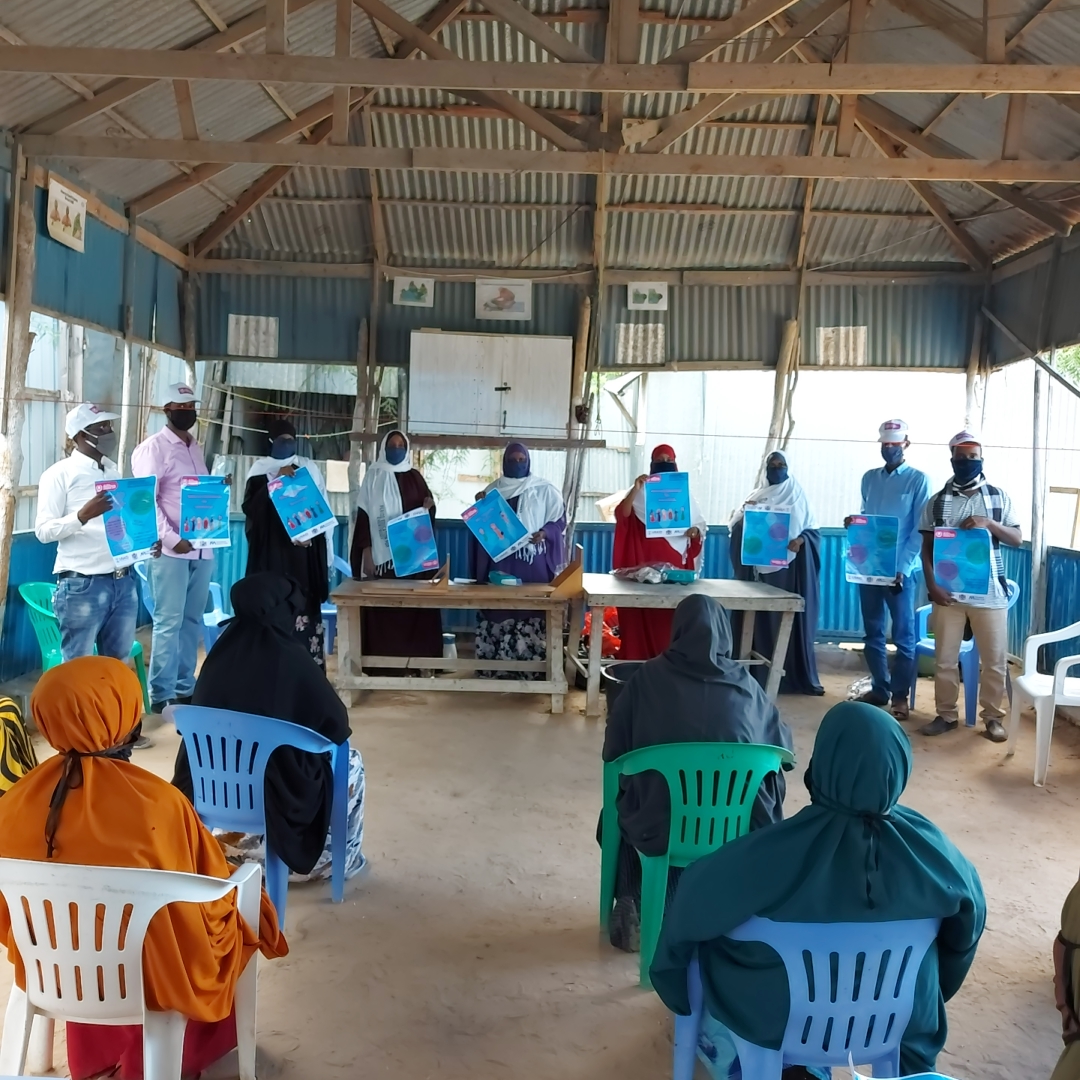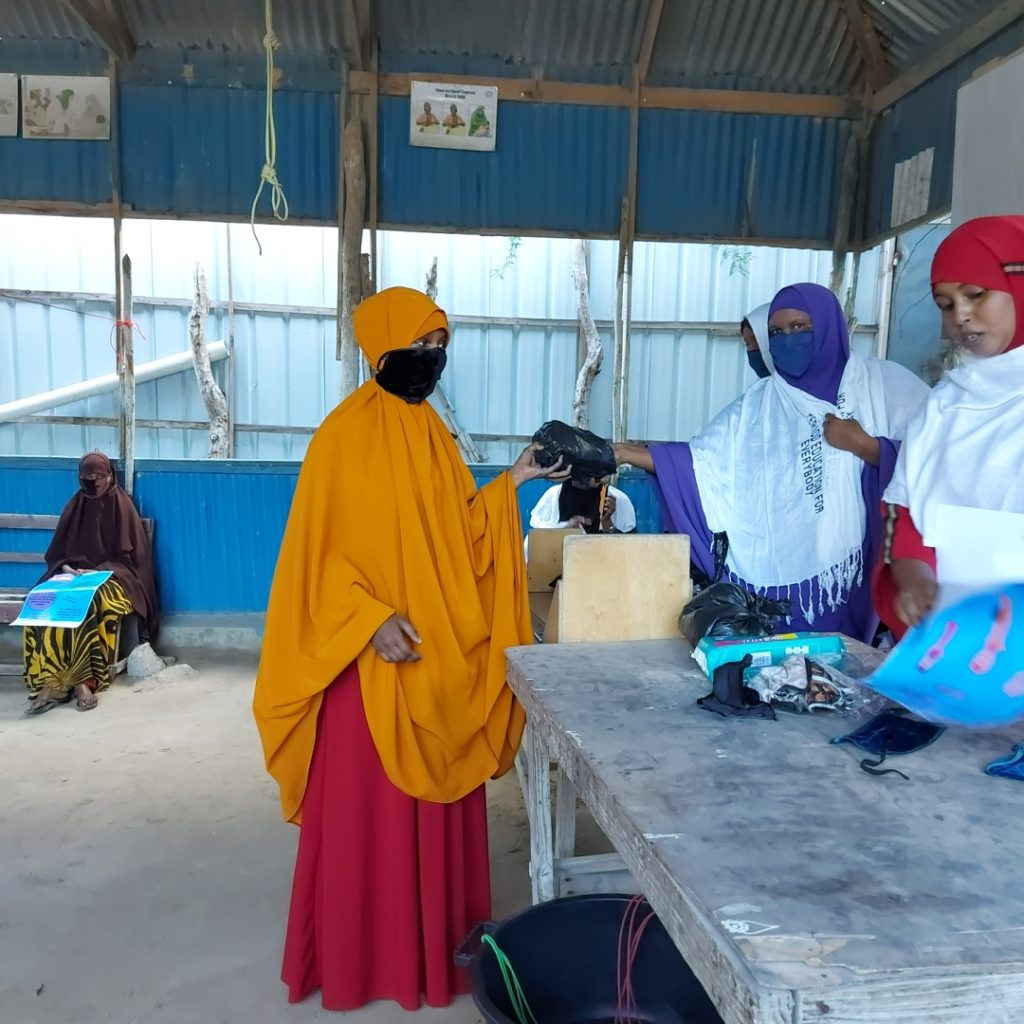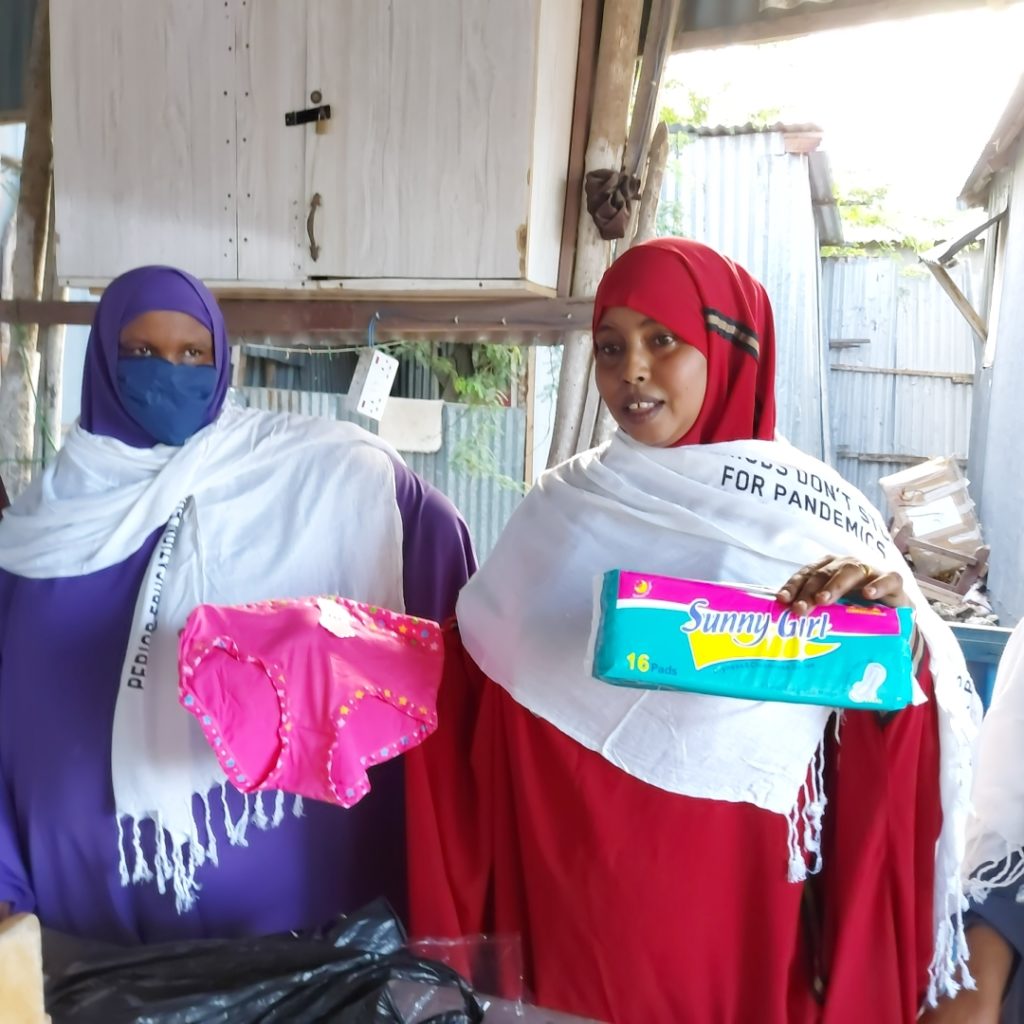Though on May 28 of every year the world comes together to recognize Menstrual Hygiene Day, menstruation still remains a taboo subject in some parts of the world. In Somalia, most women are aware that menstruation is a normal process, but the topic is rarely openly discussed. In addition, a lack of education, sanitation infrastructure (such as private and safe—meaning well-lit and lockable—toilets and handwashing facilities) and access to sanitary materials, as well as persisting taboos and stigma, makes practising good menstrual hygiene challenging for most girls and women.
World Menstrual Hygiene Day highlights the importance of good menstrual hygiene management and raises awareness about the challenges that women and girls face during menstruation. This year, the day—themed Periods Don’t Stop for Pandemics—aims to highlight that periods are part of a natural process that occurs regardless of the circumstance.


This year, International Medical Corps is celebrating World Menstrual Hygiene Day in Somalia by creating awareness and providing menstrual hygiene products to women and girls amidst the COVID-19 pandemic.
With funding from USAID, International Medical Corps provides menstrual hygiene products and dignity kits to women and girls from vulnerable and marginalized communities in Somalia to promote safe menstrual hygiene management. Our community health workers provide menstrual hygiene education to women and girls, and teach them how to use the items in the dignity kits. International Medical Corps also runs youth-friendly clinics where adolescents and youths can easily access reproductive health information, including on menstruation.

Our teams reached out to five girls aged between 18 and 25 in four regions of Somalia—Mogadishu, Galkayo, Baidoa and Jowhar—to find out if they understand their menstrual cycle, what safe menstrual hygiene means to them, some of the challenges that they encounter during menstruation and what cultural beliefs exist around menstruation.
Aisha*, 22, Baidoa
“I understand my cycle and so I know when my period is about to approach. During this time, I feel shy and so I stay at home for some days. I also feel pain and dizziness and I therefore like sleeping throughout the day. I use sanitary pads although there are times that I lack due to financial problems. If sanitary pads are not available, I use a piece of clean cloth, which I rinse with plenty of water to practice safe menstrual hygiene. It is very vital to practice good hygiene because the blood from the reproductive system can bring infections and therefore, proper hygiene is very necessary. Through International Medical Corps, I have learnt how to maintain cleanliness during my period as well as other alternatives that I can use if pads are not available.”
Fouzia*, 20, Mogadishu
“Menstruation in our community proves that a girl or woman is not pregnant. For me to practice safe menstrual hygiene, there needs to be availability of water, soap and private latrines. I live with my three children and menstrual hygiene requires time, and good privacy is therefore important. During my period, I am unable to work because of back, lower abdomen and kidney pain. I observe good hygiene by using clothes, pads or cotton wool. This prevents infection and keeps the body clean. Through International Medical Corps, I have learnt about good menstrual hygiene practice.”
Fatuma*, 19, Jowhar
“Menstruation is considered a normal occurrence in my community. Menstrual cycle is the period between one menstrual occurrence and the other, and I am aware of mine since I do count the days. During my period, I feel too lazy, get nausea, intestinal pain and lower abdomen pain. I am also unable to eat my diet normally and do my homework regularly. Menstrual hygiene is maintaining cleanliness and continuously washing your hands with soap and water. This practice helps me to not get infected with any serious diseases. Maintaining good menstrual hygiene also enables me to be healthy, to be able to play with girls my age, and to be able to go to school. In order to practice safe menstrual hygiene, I need to use pads or clean cloth, and to wash my hands with soap. International Medical Corps has given me free pads on several occasions and taught me how to take care of myself during my menstrual period.”
Khadija*, 20, Galkayo
“In my community, when it comes to menstruation, nothing changes, it’s a normal thing. I am unable to track my menstrual period since it is irregular and sometimes it occurs twice a month. During my period, I go through mood changes, have poor appetite, get headaches and nausea, and my movement is restricted. I also do not pray during the days of menstrual flow. Since I use clothes during my menstruation, I have to wash the clothes frequently to maintain good menstrual hygiene. For me, good menstrual hygiene is being clean at all times. Practicing safe menstrual hygiene requires sanitary pads and soap. Good menstrual hygiene makes one clean, confident and free from infection. Through International Medical Corps, I have previously received sanitary pads as well as general hygiene messages from community health workers.”
Amina* 22, Galkayo
“Some of the cultural beliefs surrounding menstruation in my community are that if a lady has her period, she is not supposed to touch babies. Some believe she is not to wash her body, her clothes and even comb her hair. Even her cooked food will not be eaten. For me, good menstrual hygiene is using proper sanitary items for good health, happiness and cleanliness. During my period, I feel very severe pain that I cannot even walk. I feel fatigued, vomit and have loss of appetite. I also feel discomfort and I therefore cannot perform house chores. International Medical Corps has supported me with pads and soap as well as educated me on how to practice safe menstrual hygiene.”
*Names have been changed to maintain confidentiality.
